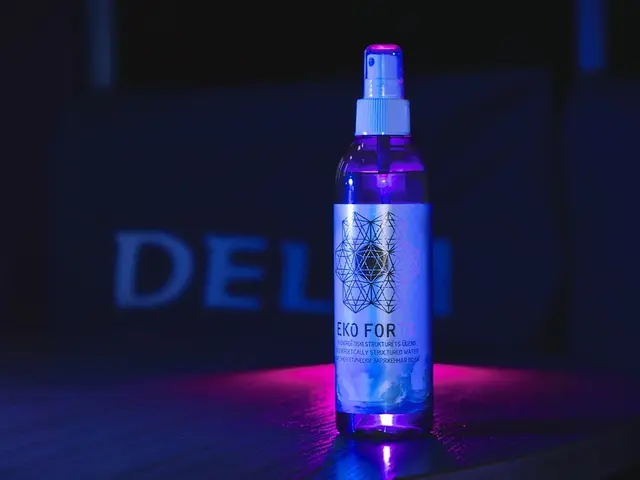Exploring the Connection Between Eye Contacts and Dryness
Wearing contact lenses can be a convenient solution for many, but it's essential to be mindful of potential issues, such as dry eyes. In this article, we will explore various strategies to combat dryness and maintain eye health when wearing contact lenses.
Firstly, it's crucial to understand that prolonged contact lens wear, wearing lenses overnight, or using hard contact lenses can worsen dry eye symptoms due to friction on the eyes, potential dryness, and reduced airflow. To prevent infections, always wash your hands before putting in contacts.
Healthcare providers may recommend switching to glasses while treating dry eyes or considering scleral lenses, which rest on the white part of your eyes and bring in oxygen, potentially helping with dryness.
Staying well-hydrated by drinking plenty of water supports healthy tear production and maintains eye moisture. Additionally, using lubricating or rewetting eye drops specifically formulated for contact lens wearers can provide immediate moisture relief.
Wearing daily disposable lenses can reduce deposit buildup and irritation contributing to dryness. However, this should be done under professional guidance for proper fitting. Taking regular breaks from lens wear and substituting glasses part of the day helps eyes rest and recover moisture.
Protecting eyes from wind and direct sunlight by wearing sunglasses reduces tear evaporation and irritation. Using a humidifier to add moisture to dry indoor air can also improve comfort.
Blinking consciously, especially when using screens, helps maintain a healthy tear film by spreading tears evenly over the eye surface. For some, warm compresses may improve meibomian gland function, enhancing the oily tear layer that prevents evaporation.
It's important to note that eye allergies can contribute to dry eye symptoms in contact lens wearers. Symptoms of dry eyes in contact lens wearers can include stinging, burning, redness, blurred vision, sensitivity to light, and feelings of sand or grit in the eyes.
To reduce the risk of dry eyes, avoid wearing contacts when you sleep, keep contacts away from water, and limit your amount of screen time or take frequent breaks when using digital screens.
Always follow your doctor's recommendations for wearing contacts, including daily lenses. If experiencing dry eye symptoms after wearing contact lenses, it may be necessary to consult an eye care provider. Incorrect fitting of contact lenses can exacerbate dry eye symptoms.
Hydrogel and water gradient lenses are thin lenses that hold water and keep your eyes moisturized. Preservative-free, lubricating eye drops as prescribed can also help manage dry eyes.
Finally, replacing your contacts as directed and before the expiration date is essential for maintaining eye health. Consulting an eye care professional can help determine the best lens type and advanced treatments if standard measures are insufficient.
Before trying solutions for dry eyes on your own, it's always best to make an appointment with your optometrist for professional advice.
Maintaining eye health, especially when wearing contact lenses, involves more than just effective vision correction. Chronic dryness can arise from prolonged lens wear, overnight use, or hard contact lenses, due to friction, reduced airflow, and potential dryness. (‘contact lenses’, ‘eye-health’, ‘dry eyes’)
Staying hydrated and using lubricating eye drops formulated for contact lens wearers can aid in maintaining moisture levels and combating dryness. (‘drinking water’, ‘lubricating eye drops’, ‘contact lens wearers’, ‘dryness’, ‘eye health’)
Healthcare providers might recommend scleral lenses or a temporary switch to glasses during dry eye treatment, as these can help provide better oxygen and moisture for the eyes. (‘scleral lenses’, ‘glasses’, ‘dry eyes’, ‘eye health’)








